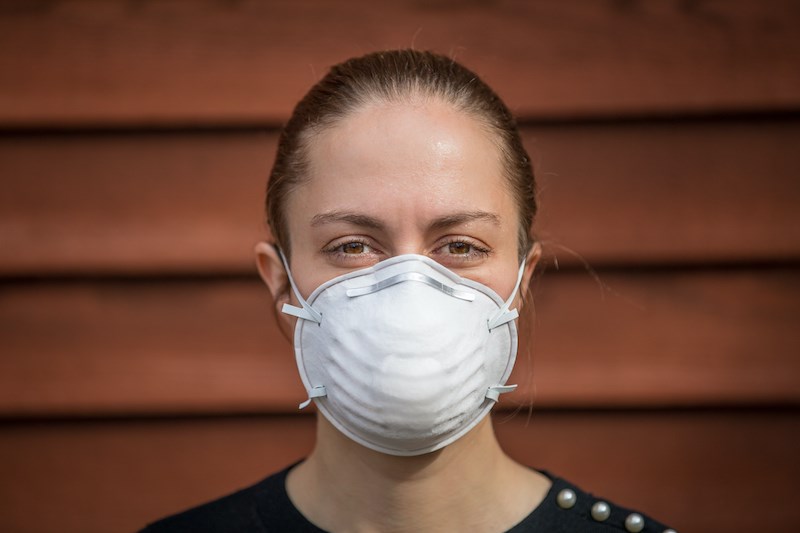B.C.'s top doctor says face masks are "more important than ever" heading into the winter season and people should wear ones with layers.
Provincial health officer Dr. Bonnie Henry told reporters in a press briefing Tuesday (Nov. 16) that the Public Health Agency of Canada has released some updated information about face masks and layers of protection to prevent the spread of COVID-19.
"If you choose to wear a non-medical mask then we want to make sure that you're wearing one that has the number of layers of protection, that it fits snugly around your nose, and that it has at least three layers and that can include a filter layer in the middle, and that it's made up of tightly-woven fabric," she explained.
Wearing a face mask that fits comfortably and correctly is most important, underscored Henry. But while non-medical masks are adequate for most people, she noted that others may want to consider wearing medical ones.
"If you have underlying health conditions or [are] immune-compromised, then you might want to choose a medical mask," she said, noting medical masks that have an extra layer filter have a "better filtering effect" as they attract particles and droplets with the virus.
Medical masks and respirators sold in Canada are also required to meet established standards for filtration, breathability, and fluid resistance. However, Henry noted that "they can be challenging for people. They can be irritating and they can cause it to be more difficult to breathe."
Another option is to wear a non-medical face mask on top of a medical one to improve the fit around the mouth, she added.
Although coronavirus vaccines approved for use in Canada provide substantial protection against severe illness, no vaccine is 100 per cent effective. Henry stressed that along with other recommended public health measures, a well-constructed, well-fitting and properly worn mask can help prevent the spread of the virus.
"It is important, particularly as we head into the holiday season, that when we're indoors in public spaces when we're indoors around other people that we as many of us gathered to celebrate important religious events, for example," she said.
"We want to ensure everybody has the best protection possible and that includes right now being consistent in wearing masks when we're in indoor spaces."
Public Health Agency of Canada advice on non-medical masks
If you choose to wear a non-medical mask, it should be made of:
- multiple layers, including
- at least two layers of tightly woven fabric, such as cotton and
- a third, middle layer of filter-type fabric, such as non-woven polypropylene
- materials that are breathable
Using a filter as a middle layer in your non-medical mask can help to trap smaller infectious respiratory particles.
You can include a filter in your non-medical mask by:
- adding a filter fabric as a middle layer
- inserting a disposable filter into a pocket on the inside of the mask
- filters can be purchased or you can prepare your own using a piece of filter fabric
Reusable masks with an integrated filter layer can be washed multiple times.
Disposable filters should be:
- changed as directed by the manufacturer
- removed from the mask before washing
Find more information about the updated guidance on face masks with the Public Health Agency of Canada online.


.jpg;w=120;h=80;mode=crop)

